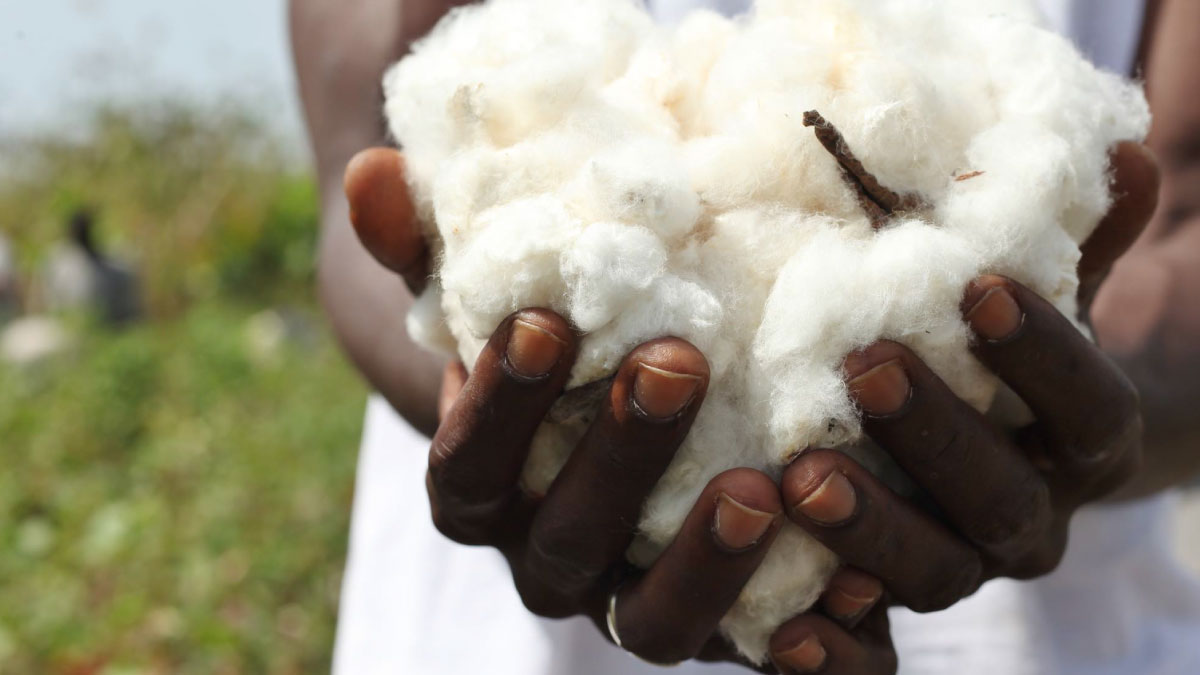
The Cotton Board of Zambia remains optimistic about the country’s cotton production for the 2022/2023 farming season, despite the challenges posed by floods that have affected farmers across the nation, including cotton farmers. In an exclusive interview with the Zambian Business Times (ZBT), Senior Inspector Nyambe Kwalombota from the Cotton Board of Zambia stated that the board expects a slight increase in cotton production due to an increase in the number of farmers engaged in cotton production, who were incentivized by the prices offered in the last season.
According to Kwalombota, the weather conditions, particularly floods, have impacted cotton production, as excessive water and heavy rains have affected the progress of cotton crops. However, he expressed confidence that a good percentage of farmers would still be able to harvest cotton despite the challenges posed by floods. While some farmers had to abandon their fields due to excessive water, and others faced difficulties in spraying due to heavy rains, the increased number of farmers engaged in cotton production is expected to offset these challenges and result in a potential increase in cotton production for the current farming season.
In the previous farming season, Zambia produced 245,000 metric tons of cotton in the 2021/2022 season, and the Cotton Board of Zambia is currently in the process of finalizing paperwork to ascertain the projections for the 2022/2023 season. Kwalombota stated that the board expects to provide the figures for the current year’s projections in the next two weeks after completing the paperwork. Despite the challenges posed by floods, the increase in the number of farmers engaged in cotton production is expected to contribute to a potential increase in cotton production for the current farming season.
The Cotton Board of Zambia attributes the increase in cotton production to the incentives offered in the last season, which have encouraged more farmers to venture into cotton production. The favorable prices offered for cotton in the previous season have motivated farmers to expand their cotton production, despite the challenges posed by floods. The Cotton Board of Zambia has been actively working to promote cotton production in the country by providing incentives and support to farmers, such as access to quality seeds, training on best agricultural practices, and facilitating access to markets for their cotton produce.
The increase in cotton production is expected to have several positive impacts on Zambia’s agricultural and economic sectors. Cotton is a vital cash crop for many smallholder farmers in Zambia, providing them with income and livelihood opportunities. Increased cotton production would contribute to improved rural livelihoods, increased income for farmers, and overall economic growth. Additionally, cotton production also plays a significant role in the textile and garment industry, generating employment opportunities, and contributing to the country’s export earnings.
However, it is important to note that the potential increase in cotton production for the current farming season is not without challenges. Floods and adverse weather conditions continue to pose risks to cotton production in Zambia, and farmers will need to employ appropriate strategies to mitigate these risks, such as timely planting and effective pest and disease management. The Cotton Board of Zambia will also need to continue providing support and incentives to farmers to ensure sustained growth in cotton production.
In conclusion, despite the challenges posed by floods, the Cotton Board of Zambia expects a slight increase in cotton production for the 2022/2023 farming season, driven by an increase in the number of farmers engaged in cotton production and motivated by favorable prices offered in the previous season. The potential increase in cotton production is expected to have positive impacts on rural livelihoods, income generation, and economic growth. However, challenges such as adverse weather conditions remain, and sustained efforts by the Cotton Board of Zambia and farmers will be needed to ensure continued growth in cotton production in Zambia.


















